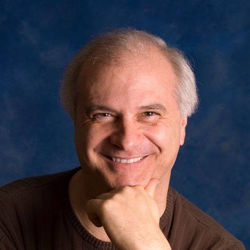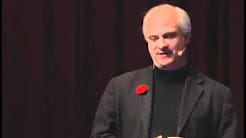Mark Terry
Producer, Writer, Director, Speaker

Documentary filmmaker Mark Terry has been producing award-winning films in Canada for more than 25 years. With his film, The Antarctica Challenge: A Global Warning (2009), he achieved the rare feat of having made a documentary film on all seven continents. Since then, he made a film crossing the Arctic’s Northwest Passage, The Polar Explorer (2010), and recently completed his trilogy of polar documentaries, The Changing Face of Iceland (2021) which will be screened at the United Nations climate summit, COP26, in November, 2021. Mark is an expert in the environmental issues affecting fragile eco-systems and, by extension, the world.
He received his PhD from York University in 2019 and teaches there on the subjects of filmmaking and environmental issues. His best-selling book, The Geo-Doc: Geomedia, Documentary Film, and Social Change, details Dr. Terry’s remediation of the documentary film as an instrument of social change for the United Nations. For this achievement he has won numerous awards and has been inducted into the Royal Society of Canada as a Fellow, the country’s highest academy.
Mark is also a Fellow of the Royal Canadian Geographical Society and The Explorers Club, as well as a Research Fellow at the Dahdeleh Institute for Global Health Research where he leads the Planetary Health Film Lab project, a workshop that trains Indigenous youth throughout the world how to make films for the United Nations.
His filmmaking work and academic research have been recognized on many fronts. He has been decorated by Queen Elizabeth with her Diamond Jubilee Medal and by The Explorers Club with their Stefansson Medal for introducing film as a data delivery system to the United Nations. His ongoing research in using film as a communications tool for policy creation has been awarded with grants from Canada’s Social Sciences and Humanities Research Council.
His latest project, the Youth Climate Report, a digital, database documentary film project showcasing more than 500 films made by the global community of youth, won a United Nations Sustainable Development Goals Action Award in 2021. Today, Mark travels the world conducting workshops in training youth to make these films and have their voices heard at UN policy conferences.
Mark’s talks are in high demand. He frequently speaks an UN conferences, environmental events, academic conferences, and he has given three TED Talks: TEDxHomer (Alaska), TEDxIBYork (Toronto), and TEDxVail (Colorado).
Mark's film career has taken him to the Painted Desert in Australia, the Sahara Desert in Egypt, Ecuador and Venezuela in South America, Hong Kong, Kowloon, Lantau Island and Macau in Asia and throughout Europe, North America and the Caribbean. An avid mountaineer, Mark has climbed several mountain ranges around the world include the Rockies (Canada and the US), the Andes (Ecuador and Argentina), the Alps (Italy and Switzerland), the Carpathian Mountains (Romania), the Atlas Mountains (Morocco), and the Sar Mountains (The Balkans).
A risk-taker and shrewd outdoorsman, Terry possesses the rare ability to stir audiences with both picture and story. In 2011, the Academy of Canadian Cinema and Television gave Mark their seldom-presented Humanitarian Award for his thought-provoking films.
Speakers Like Mark Terry
Check Speaker Availability and Pricing
"*" indicates required fields
Speaking Topics
The Northwest Passage: Canada's Gateway to the World
Canada’s Northwest Passage connects eight nations of the global Arctic: Canada, Kingdom of Denmark [Greenland & The Faroe Islands], Finland, Iceland, Norway, Sweden, Russia, and USA. And while these nations represent millions of people, very few of them live in the Arctic, and even fewer have even visited. This talk examines the beauty, mystery, and dangers of the Northwest Passage: the impacts of climate change, environmental transformations, geo-political land claims, its marine life, and the people who live there. Travel with decorated polar explorer Mark Terry, who crossed the Passage on the Canadian Coast Guard Icebreaker The Amundsen and learn why his picture is on the back of the Canadian $50 bill.
Available Film to Screen: The Polar Explorer (52 minutes).
Antarctica: Terra Incognita
Antarctica is the highest, driest, coldest, and windiest continent on earth. It is also one of the least visited place on earth. Little is known of this strange, cold land outside of what is presented in documentaries. Decorated Polar Explorer Mark Terry takes us on a trip to Antarctica with a talk detailing his expeditions to this frozen land and how it is changing with warming temperatures. Penguin suicide, collapsing glaciers, newly emerging land masses, prehistoric grass growing again, life-threatening crevasses, and fascinating scientific discoveries will be discussed as well as a detailed account of the arduous journey one must endure to visit this unknown land.
Available Film to Screen: The Antarctica Challenge: A Global Warning (52 minutes)
The Art of the Hollywood Musical
The Golden Age of Hollywood is a category of cinema occurring between the late 1920s and the early 1960s. During this time a particular genre flourished – the musical. Usually themed around romance, the musical was often light-hearted and provided many with a much-needed escape from the horrors of World War II. But the genre was unique in another less-studied way. It provided visual artists an opportunity to create some of the most breathtaking scenes in cinema history: the art-deco designs of Erte and the birth of corporate branding; the “wedding cake” dance numbers of Busby Berkeley (1930s); Vincent Minnelli’s surreal stage productions of An American in Paris (1951); the reality-bending set pieces of George Cukor’s A Star is Born (1954). And these are just some of the examples of the artistic experimentation in the Hollywood musical that this course will present and explore.
This talk presented by film professor Mark Terry of Wilfrid Laurier University will examine how this film genre not only evolved artistically, but how these transformations reflected the societies of the time as a means of escape from the horrors of the depression and World War II in the 1920s and 1930s, in service of the teenager in the 1950s when adults abandoned cinema for the comfort of television at home, and to provide music lovers with an alternative to records and CDS – the music video.
The Documentary Film: Instrument of Social Change
Since 1895, the moving picture has demonstrated a unique ability to emotionally engage and move audiences. The non-fiction content of these early films represented reality in a new way and the early filmmaker soon learned that he could influence and educate audiences as means of agency for social change. As techniques and technologies changed, so too, did the documentary’s ability to inform power and influence the masses. As a communications tool, it is one of the most powerful means of mobilizing customers in the commercial world.
This talk will be presented by documentary film professor Mark Terry of York University. Himself, a documentary filmmaker, he has also remediated the documentary film for global issues like pandemics and climate change in a new form called the Geo-Doc. This talk will also examine some of the world’s most successful documentary filmmakers and their films in this regard: John Grierson and the National Film Board of Canada, Robert Flaherty, Dziga Vertov, and Colin Low. Clips from such important and influential films such as Nanook of the North, Man with a Movie Camera, The Fogo Island Films, If You Love This Planet, and The Antarctica Challenge: A Global Warning will be screened.
Available Film to Screen: The Changing Face of Iceland (52 minutes)
Climate Change in the Polar Regions
Life in Antarctica
Innovations to Documentary Filmmaking
Engaging Youth in UN Policy Meetings
Film as a Communications Tool to Inform and Influence Policy
"The quality of Dr. Terry's was deemed excellent. I think that coming out from behind the material led to a connection with the viewing membership and they rated his delivery as excellent. One member commented that Mark Terry was 'super organized, dynamic, ultra-accomplished, and beyond modest'. We look forward to working with Dr. Terry again."
Del Milbrandt, Program Director, Living and Learning, Glendon College, Toronto.
"Dr. Terry's films... are extremely valuable in educating the general public and allowing the viewer an insider's perspective to data collection in environments few have the opportunity to experience first-hand. I recommend Mr. Terry and his films to any organization that has an interest in spreading the word regarding climate change research and the major impacts it has for polar regions."
President, Yukon University, Whitehorse, NWT.
"The presence of Dr. Terry in Regina was indeed a highlight. The background information and candid response to many informed questions added significantly to the experience of the audience. I can without any doubt recommend Mr. Terry and his extraordinary documentaries to any organisation."
Dr. Malcolm Wilson, Co-Recipient, Nobel Peace Prize, 2007, University of Regina, Regina, Saskatchewan.
"Mark's films balance both the concern and optimism needed in the future. They are expertly made and provide a stunningly beautiful representation of the polar regions. It would be a pleasure to have Mark back in Prince George and I would be happy to recommend him and his work to other venues and organisations."
Professor, University of Northern British Columbia, Prince George, BC.
"Mark is an adept storyteller who is passionate about his work. He provided a tremendous example to young researchers interested in communicating to a broader audience."
TerreWEB Program, University of British Columbia, Vancouver, BC.
"The lecture by Dr. Terry was very informative and provided great hope that his work with the United Nations will provide the help and support necessary for when the sea levels rise... We highly recommend him to any university interested in climate change research, environmental studies, journalism or documentary filmmaking."
The Institute of the Peoples of the North, University of Russia, Saint Petersburg, Russia.


